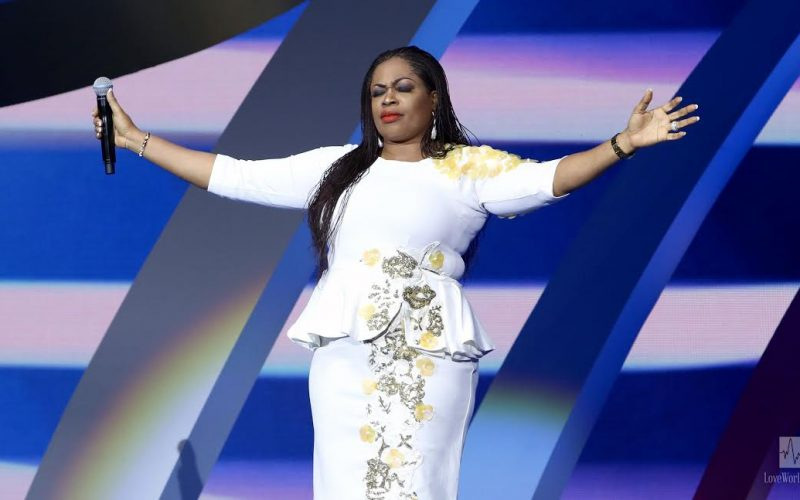6 Music Genres That Define Nigerian Music
31 July 2023

[Sinach/People Daily Kenya]
Written by Pharis Kinyua
Nigeria's vibrant musical tapestry is a harmonious blend of diverse genres that have shaped the country's cultural identity and made waves globally. From the infectious rhythms of Afrobeat to the soul-stirring melodies of Highlife, Nigerian music genres have captured the hearts of millions.
Juju's energetic grooves, the political charge of Afrobeat, and the spiritual power of Gospel music all contribute to the rich tapestry that is Nigeria's musical landscape. Mdundo.com explores the rhythmic journey of the iconic genres that have defined and continue defining Naija music resoundingly and unapologetically.
Highlife
Highlife, a genre that originated in the early 20th century, holds a special place in Nigerian music history. Influenced by Ghanaian palm wine music and Western jazz, Highlife combines indigenous rhythms with Western instruments. Pioneers such as E.T. Mensah and Bobby Benson popularized the genre, laying the foundation for future artists.
Highlife's catchy melodies and socially conscious lyrics have had a lasting impact on Nigerian music, with elements of the genre continuing to be incorporated into contemporary Afrobeats.
Juju
Juju music emerged in the 1930s and gained prominence in the 1960s through the work of musicians like Tunde Nightingale and IK Dairo. It combines traditional Yoruba music with Western instruments, incorporating elements of palm wine music, jùjú chants, and fuji. King Sunny Ade, often referred to as the ""King of Juju,"" played a pivotal role in popularizing the genre globally. Juju's energetic rhythms and captivating guitar solos have influenced various Nigerian music styles, including Afrobeats.
Afrobeat
Afrobeat, a genre created by the legendary Fela Kuti in the 1960s, is a fusion of highlife, funk, jazz, and traditional Nigerian rhythms. Fela's politically charged lyrics, infectious grooves, and captivating stage performances revolutionized Nigerian music. Afrobeat's powerful social commentary, fueled by Fela's activism, resonated with listeners globally, influencing subsequent generations of musicians. Today, Afrobeat remains a prominent genre, with artists like Burna Boy and Wizkid carrying the torch and incorporating their unique styles.
Fuji
Fuji music, rooted in the traditional Muslim Yoruba music style, emerged in the 1960s. Developed by Alhaji Sikiru Ayinde Barrister, fuji blends Islamic chants, Yoruba rhythms, and elements of apala music. The genre gained popularity through artists like Kollington Ayinla and Wasiu Ayinde Marshal, known as Kwam 1. Fuji's energetic percussion and socially relevant lyrics have continued to shape Nigerian music, influencing contemporary genres like Afrobeats and fuji fusion.
Afrobeats
Afrobeats, a modern genre that rose to prominence in the early 2000s, is a fusion of various Nigerian and international musical styles. It blends elements of highlife, Afrobeat, hip-hop, R&B, dancehall, and reggae. Artists like D'banj, P-Square, and Wizkid propelled Afrobeats to international recognition, with its infectious rhythms, catchy melodies, and energetic dance moves. Afrobeats has become a global phenomenon, with Nigerian artists collaborating with international acts and topping international charts, thereby shaping the contemporary musical landscape.
Gospel Music
Gospel music holds a significant place in Nigerian music culture, reflecting the country's strong religious beliefs. It encompasses a wide range of styles, including traditional gospel, contemporary Christian, and gospel reggae. Gospel artists such as Sinach, Tope Alabi, and Frank Edwards have gained widespread acclaim for their uplifting lyrics and soul-stirring performances.
Nigerian gospel music has influenced both secular and non-secular genres, bridging the gap between spirituality and entertainment.
Each of these iconic Nigerian music genres has left an indelible mark on the country's musical landscape. They have not only shaped Nigerian music but have also influenced global sounds, serving as sources of inspiration for artists around the world.
Even as Nigeria continues to produce exceptional talents and musical innovators, the diverse genres that define its musical heritage undoubtedly continue to evolve and make significant contributions to the ever-changing global musical landscape.





Leave your comment